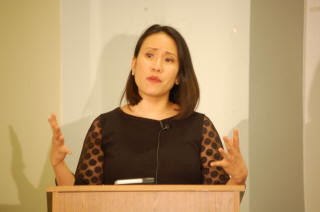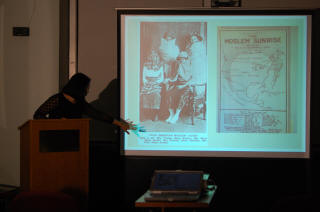
Sylvia Chan-Malik is Assistant Professor of American and Women's and Gender Studies at Rutgers University-New Brunswick. Her research examines the intersections of race, religion, gender, and sexuality through critical frameworks of American transnationalism and comparative ethnic studies, with a specific focus on the history of Islam in the United States. She has published in scholarly journals, edited anthologies, and other mediums, includingThe Annals of the American Academy of Political and Social Science, The Journal of Race, Ethnicity, and Religion, The Cambridge Companion to American Islam , and the Social Science Research Council's (SSRC) blog The Immanent Frame. Her current book manuscript, entitled 'A Part of Islam': Race, Gender, and the Making of Muslim America, 1959-Present, tracks an alternative cultural history and consciousness of Islam in America from the Cold War, through the culture wars of the 1980s and 90s, and into the War on Terror. Utilizing interdisciplinary methods drawn from the fields of literary and cultural studies, media studies, history, sociology, anthropology, and film studies, she links Islam's post-9/11 presence to the feminist, anti-racist, and racially syncretic religious impulses of what she names the "foundational blackness" of American Islam. Her teaching interests include Muslim Studies, the cultures of 9/11, transnational American Studies, Afro-Asian intersections, Asian American and Diaspora Studies, Islamic feminisms, and critical and comparative ethnic studies.
Chan-Malik received her Ph.D. in Ethnic Studies from the University of California at Berkeley in 2009, her M.F.A. in Creative Writing from Mills College in 2001, and her B.A. in English and Ethnic Studies from the University of California at Berkeley in 1998. Prior to joining the faculty at Rutgers, she was a UC President's Postdoctoral Fellow at the University of California at Santa Cruz and a Ford Foundation Diversity Fellow.



